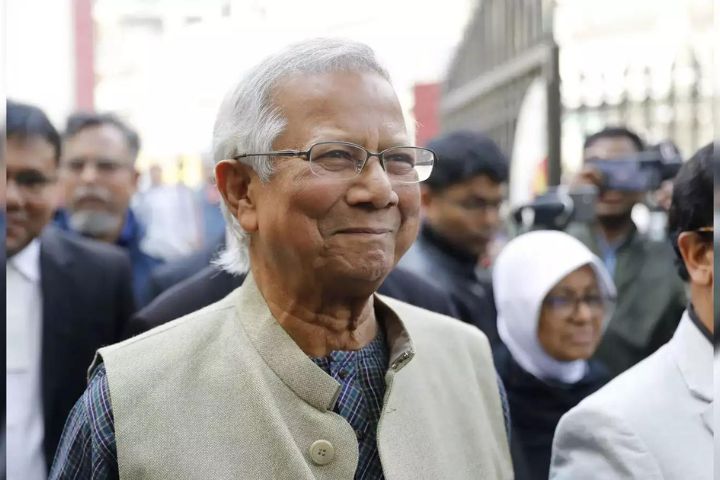In a significant political shift, Nobel laureate Muhammad Yunus has been appointed as the head of Bangladesh’s interim government by President Mohammed Shahabuddin. This appointment comes on the heels of former Prime Minister Sheikh Hasina’s resignation and subsequent departure from the country, following widespread protests against her administration’s controversial quota system for public sector jobs.
The decision was finalized during a meeting at Bangabhaban, where President Shahabuddin consulted with military chiefs and a delegation from the Anti-Discrimination Student Movement. “The President named Dr. Yunus as the chief adviser of the interim government,” announced President’s Press Secretary Md. Joynal Abedin after the four-hour meeting.
A New Era Amidst Turmoil
Yunus, 84, who is currently abroad, welcomed the political upheaval, referring to it as the “second liberation” of Bangladesh. Known for his pioneering work in microfinance through the Grameen Bank, Yunus received the Nobel Peace Prize in 2006 for his efforts to combat poverty. His appointment signals a potential shift in governance as Bangladesh seeks to stabilize following weeks of violent protests that have resulted in over 100 fatalities.
The interim government is expected to address urgent issues, including restoring peace and trust among the populace, which has been shaken by recent unrest. Yunus’s experience in both social entrepreneurship and governance will be crucial as he navigates these challenges.
Challenges Ahead for the Interim Government
As Yunus prepares to lead the interim administration, he faces pressing tasks. The interim government must clarify its objectives and responsibilities until new elections can be held. Additionally, Yunus will need to appoint advisers, including at least one veteran of the 1971 Liberation War, to help guide the government through this transitional period.
Fahmida Khatun, head of research at the Center for Policy Dialogue, emphasized the importance of restoring order. “There is chaos on the streets, a significant lack of trust in law enforcement, and considerable property destruction,” she noted, highlighting the need for immediate action to stabilize the situation.
Background of Political Tensions
Yunus’s relationship with Sheikh Hasina’s government has been fraught with tension since she took power in 2008. Following his attempts to form a political party during a military-backed government in 2007, Yunus faced numerous investigations and was eventually removed from his position at Grameen Bank in 2011. His past criticisms of Bangladeshi politicians and their interests in corruption have further strained his ties with the ruling party.
Despite these challenges, Yunus’s leadership could mark a new chapter for Bangladesh, as citizens hope for a government that prioritizes their needs and addresses the pressing issues of the day. As the interim government takes shape, many will be watching closely to see how Yunus navigates the complex political landscape and works to restore stability in the country.





GIPHY App Key not set. Please check settings